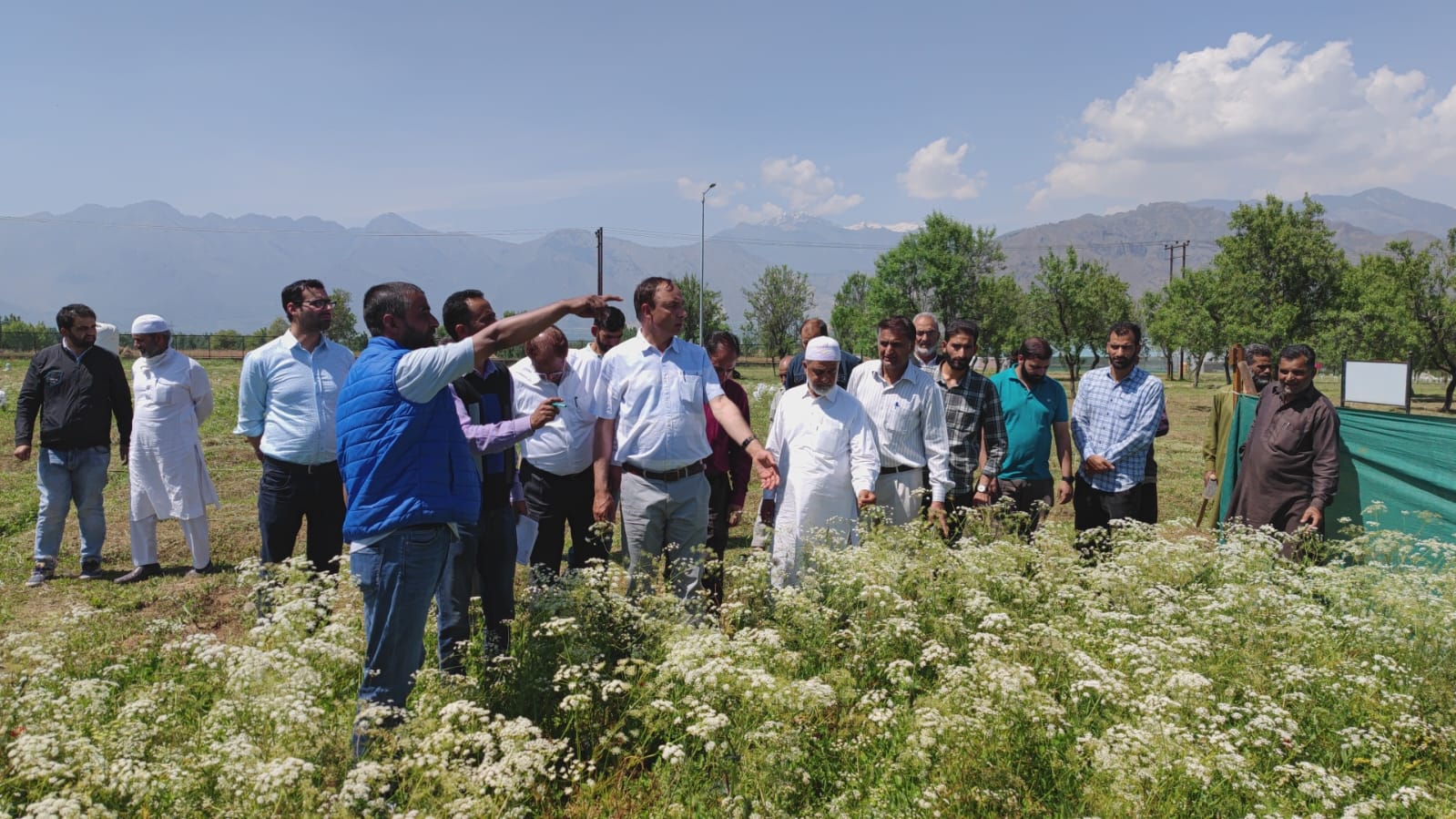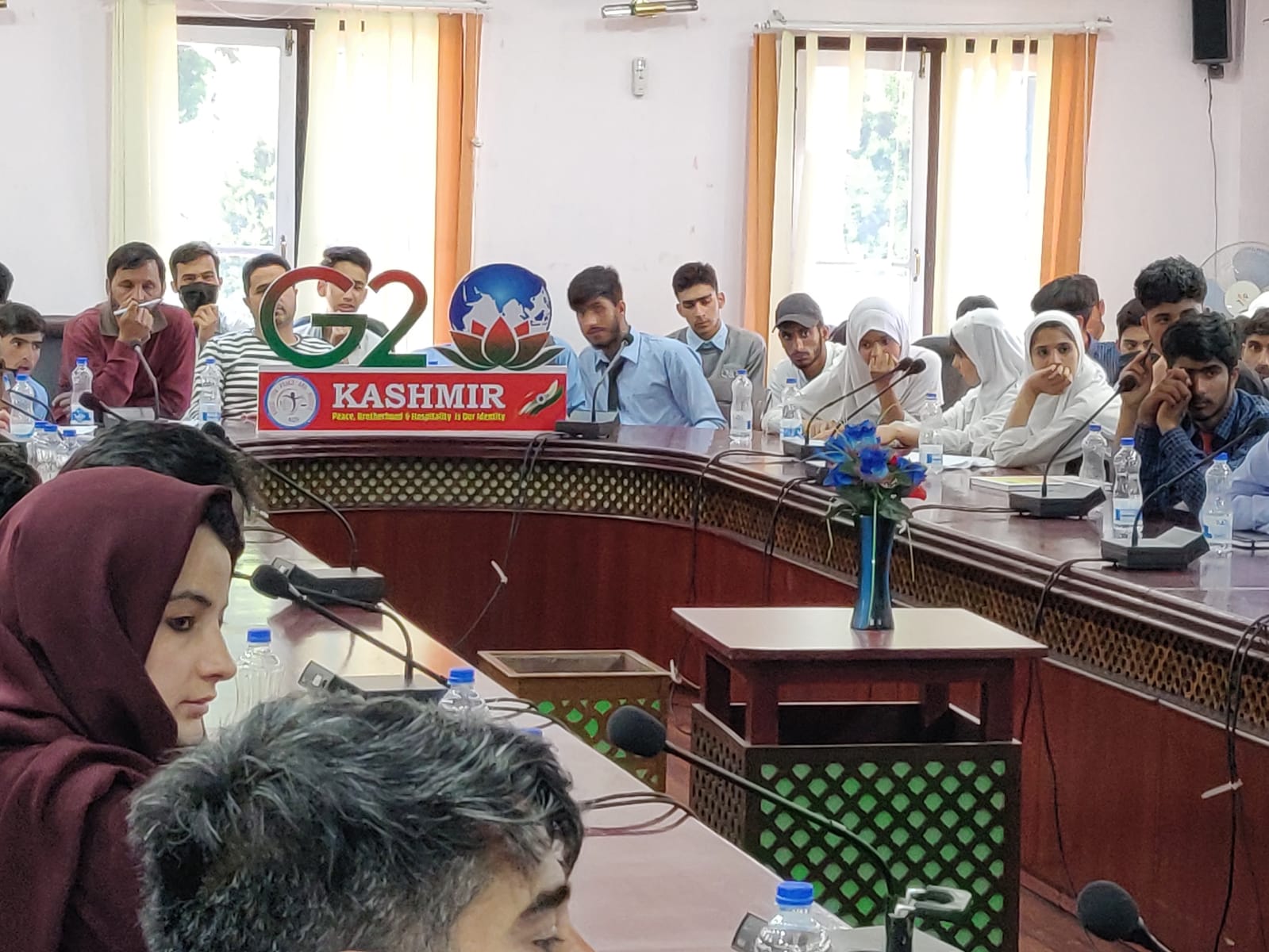Pulwama, May 20: The Sher-e-Kashmir University of Agriculture Sciences and Technology (SKUAST) Kashmir is set to revolutionize farming practices in the region by introducing the cultivation of Kala Zeera (Black Cumin) to local farmers. Dr. Nazir Ahmad Ganie, Vice Chancellor of SKUAST-Kashmir, made this announcement during the observance of Kala Zeera Day at the varsity’s Advanced Research Station for Saffron and Seed Spices in Dusso, Pampore.
He said that previously, the cultivation of Black Cumin was confined to certain areas like Gurez and Paddar, where it grew naturally in forests. However, due to overexploitation by the people of Gurez, the crop was on the verge of extinction. Recognizing the potential of Black Cumin, the university took measures to preserve the seeds and initiated corm multiplication at their Advanced Research Station.
To evaluate the crop’s performance in local climatic conditions, SKUAST collected 80 selections from various locations across Kashmir. After thorough analysis, four genotypes showed promising results. As a result, the university is developing a strategy to expand the cultivation of these genotypes across a larger area in the saffron-growing region surrounding the Research Station in Dusso, Pampore.
During the Kala Zeera Day event, SKUAST invited progressive farmers to raise awareness about this lucrative cash crop. Dr. Ganie emphasized that farmers had limited knowledge about Black Cumin, which has significant potential for their economic growth. He highlighted that approximately 18 kilograms of Black Cumin can be harvested from one Kanal of land, with each kilogram fetching around Rs. 6,000. This means that a farmer can earn up to Rs. one lakh by cultivating Black Cumin on a single Kanal of land.
One of the key advantages of this crop is its compatibility with saffron cultivation. Black Cumin can be intercropped with saffron without any interference between the two crops. While Black Cumin is harvested in May and June, the saffron crop can be harvested in October from the same bed.
By introducing Black Cumin as a viable cash crop and promoting its cultivation alongside saffron, SKUAST-Kashmir aims to enhance the economic prospects of farmers in the region. The university’s efforts are expected to contribute significantly to the agricultural sector and foster sustainable farming practices in Pulwama.







